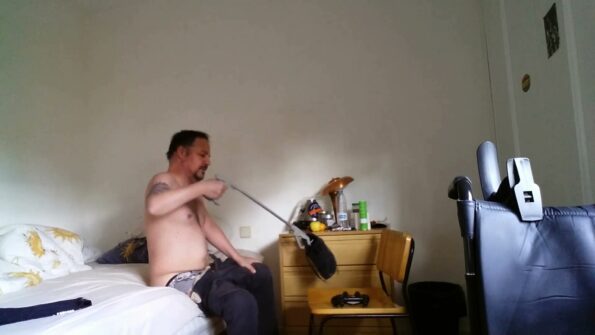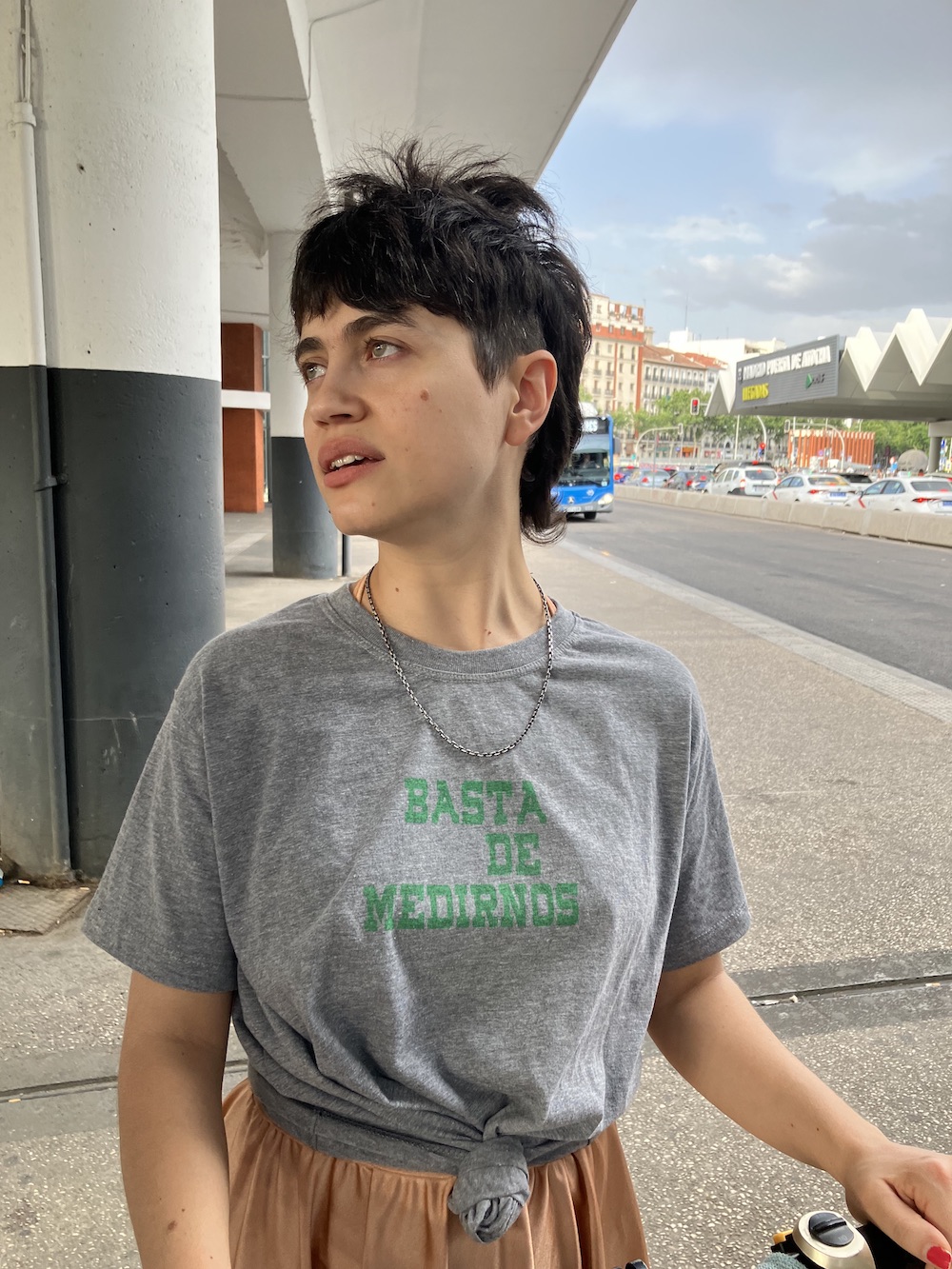Search
To search for an exact match, type the word or phrase you want in quotation marks.
A*DESK has been offering since 2002 contents about criticism and contemporary art. A*DESK has become consolidated thanks to all those who have believed in the project, all those who have followed us, debating, participating and collaborating. Many people have collaborated with A*DESK, and continue to do so. Their efforts, knowledge and belief in the project are what make it grow internationally. At A*DESK we have also generated work for over one hundred professionals in culture, from small collaborations with reviews and classes, to more prolonged and intense collaborations.
At A*DESK we believe in the need for free and universal access to culture and knowledge. We want to carry on being independent, remaining open to more ideas and opinions. If you believe in A*DESK, we need your backing to be able to continue. You can now participate in the project by supporting it. You can choose how much you want to contribute to the project.
You can decide how much you want to bring to the project.

I met Nacho in 2020, a year that started who knows when and might never have even ended. I was on social media looking for people, groups or workshops related to disability that could help me repair my vehicle, a type of wheelchair I invented based on an electric scooter and to which I added a pair of wheels. Being that the vehicle was my invention, there was no shop or specialized technician for it, and thus the usual repair rules don’t apply to its body. Every time something happens to it, even if it’s something as simple as a flat tire, a long and uncertain process begins that involves different professionals (locksmiths, bicycle repairmen, scooter technicians) to find out what is wrong with it and if it will ever roll again.
In the periods when the vehicle is out of service, my normality is profoundly altered, since it is one of the axes that sustains the gears of my life. Without it I can hardly go out for a walk. During the many quarantines, loneliness and misunderstanding come to visit me more often. I’m not alone because I can’t leave the house, nor do I feel misunderstood because of it. It is then that a simple routine fact, an obvious thing for normal people, turns into such a complex world, with such a specific, exceptional, often fragile way of functioning, that you pull back. A whole universe inside but almost no language with which to communicate with others.
So loneliness and misunderstanding appear and you end up on the internet to see if you can find a bit of community and tenderness. At that moment in 2020, three years after having immigrated to Madrid from São Paulo, feeling like a crippled island in the middle of a pandemic, I started looking for very basic keywords, such as “functional diversity,” “ableness,” “wheelchair repair.” In one of those virtual voyages, I found Nacho’s Facebook page: Act with your Functional Diversity.
It was an activist page. It had been a long time since I had connected to Facebook and, looking at his feed, among the many messages and related events, I found a video, a fixed camera that shows a room where Nacho emerges naked in the morning and performs his dressing routine.[1] https://www.facebook.com/actuacontudiversidadfuncional That video was for me one of the few moments in 2020 where I saw high-level content on the internet. I wrote to him and wanted to meet him. At the bottom of the video, his description: «Medical diagnosis: Becker muscular dystrophy, heart transplant, stage 4 lung cancer with metastases, osteoporosis and something else I don’t remember. The medical diagnosis is just that, it does not imply anything else, as much as they try to screw us, catalog us, label us and discriminate against us socially with these diagnoses… make yourself visible every morning and be well. PS: Let’s see if they censor this video.»
The post was from April 18, 2020 but the video was a repost from November 9, 2017, so there was a difference of two and a half years between the two. For those of us with neuromuscular diseases, two and a half years can be enough time for our routines and ways of doing things to change as our muscles degenerate. So if one day I was able to put my shoes on with my foot on the floor, now I can no longer do it, I have to lift them onto the bed or onto the chair in which I am sitting.
The normative gaze tends to grant the diverse body layers of tragedy and melancholy that not everyone experiences in their daily lives. For a normal person, to see what they could do at one point in time but can do no longer is very hard, like the relationship people have with old age, for example. Confronting people with other ways, perhaps ones not so simple, slow and less Ford-like than normal ones, generates discomfort, shame, and sorrow.
In the midst of such a gaze, Nacho appears, naked, and tells us: «Make yourself visible every morning, and be well.» With music in the background, he gets dressed, inhabits the ordinary, the everyday and does things his way. Make ourselves visible, create our own appearances, break with the normalizing gaze. I remember a drawing by Frida Kahlo from 1934 which was not made public until 2007, when documents, photographs and paintings of her were recovered after Diego Rivera had locked them in a bathroom in the Casa Azul. The drawing is called Appearances are Deceptive.[2]Available in <https://artsandculture.google.com/asset/appearances-can-be-deceiving/NAFIvFjhd75DXQ?hl=es-419> It is a color painting, a self-portrait in which we see her in a transparent dress that goes from her head to her feet. It is a dress that covers and reveals at the same time. We can see her corset, her leg affected by polio, and her pussy, which occupies the center of the pictorial space. Her spine is portrayed as a Greek column, her left leg tattooed with blue butterflies. Below, written in pencil: “Appearances are deceptive.” Once again, it is her body that speaks and looks out at the world, like many of her self-portraits in which she stares out at those who, repeatedly, after one, two, or three decades, continue to look at her tragically. Almost ninety years later, in the banality of Mark Zuckerberg’s platform, Nacho gets dressed and then undressed, looking out at us with humor, music, from inside his room, during his daily ritual. Once again, it is his body that speaks, but he is in control of the narrative.
The video presented here, Pla, was a collaboration for an open call that dealt with the intimate and the digital. I remembered a text I had written for another context and I proposed to use it as a narration in parallel to the video. I edited it and he liked it, despite being a bit opposed to the silence (he liked the music). We did not win the competition. He passed away in November 2020.
I never met Nacho in person but we video-chatted a couple of times. He was very loved by his friends, and he left a mark on me. The video and that little story is a tribute I would like to pay to him to remember his existence, his ideas, to make visible the needs we share, the choreographies we repeatedly invent for ourselves in our daily lives. Functional diversity is everywhere, but it does not inhabit big narratives. Some lives are shorter, and their productions and stories are forgotten, or they remain in little files, locked in a bathroom, lost in the feed of a perverse and almost obsolete social network, in stories never published.
Cheers, Nacho!

Júlia Ayerbe is a researcher, curator and editor. Her work is focused on issues related to functional diversity, feminisms and editorial practices. In Brazil she has worked with institutions such as Pinacoteca de São Paulo, Casa do Povo; Sesc; Prêmio Indústria Nacional Marcantônio Vilaça; Museu da Imagem e do Som, among others. Together with Laura Daviña he founded the independent publishing house Edições Aurora / Publication Studio São Paulo (2014-2018). Since living in Madrid (2017), he has studied a master’s degree in Contemporary Art History (UCM/UAM/MNCARS) and has developed projects for European institutions such as Galerias Municipais de Lisboa; Haus der Kulturen der Welt (Berlin); MNCARS; Sala de Arte Jóven; Tabakalera; among others. He is currently preparing a doctoral thesis in the Department of Art History at the Universidad Complutense de Madrid (UCM) with an Inphinit Retaining grant from the Fundación la Caixa.
"A desk is a dangerous place from which to watch the world" (John Le Carré)